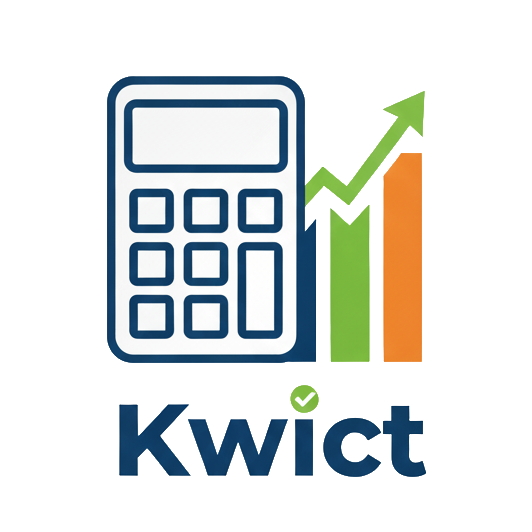Blogs
How Financial Planners Help You Take Control of Your Money and Your Future
Money touches every part of our lives — from paying bills to saving for retirement, buying a home, or achieving lifelong dreams. Yet, many people feel lost when it comes to managing their finances effectively. That’s where Financial Planners come in. They don’t just handle numbers; they help you make confident decisions about your future, create a clear roadmap toward your goals, and ensure that your money is working for you — not the other way around.
1. The Real Value of Financial Planners
While many people associate Financial Planners with the wealthy, the truth is that their services benefit anyone who earns, saves, or invests money.
1.1. What Exactly Do Financial Planners Do?

A financial planner works with you to assess your financial situation, identify goals, and design a practical strategy to reach them. Their services often include:
-
Personal finance management
-
Investment planning and asset allocation
-
Retirement savings strategies
-
Debt reduction and budgeting assistance
-
Risk management through insurance and diversification
-
Wealth management and tax-efficient investing
They provide structure, accountability, and long-term guidance — acting as both a coach and a strategist for your money.
1.2. Why Their Role Matters
Without professional advice, it’s easy to make emotional or impulsive financial decisions. Financial Planners bring objectivity, expertise, and perspective. They help you see the big picture and make smart, sustainable choices that align with your future aspirations.
2. Common Financial Challenges — and How Financial Planners Solve Them
Many people struggle with the same financial obstacles: inconsistent savings, confusing investments, or lack of planning for emergencies. Let’s see how Financial Planners tackle these issues.
2.1. “I Don’t Know Where My Money Goes.”
This is one of the most common financial complaints. A financial planner helps you track spending, set budgets, and use budgeting tools to identify areas of waste. They can design systems that ensure your income flows purposefully — toward savings, investments, and essentials.
2.2. “I Want to Invest but Don’t Know How.”
Choosing investments can be intimidating. Financial Planners analyze your risk tolerance, goals, and time horizon to recommend the right mix of stocks, bonds, mutual funds, or ETFs. Their objective is to create an investment plan that balances safety and growth.
2.3. “I’m Worried I Won’t Have Enough for Retirement.”
Through detailed retirement planning, your planner calculates how much you’ll need to maintain your lifestyle and suggests savings strategies through IRAs, 401(k)s, or other tax-advantaged accounts.
2.4. “I Have Too Much Debt.”
Debt doesn’t have to feel like a life sentence. A financial planner can help prioritize payments, negotiate better rates, and develop a repayment strategy without compromising your future goals.
3. The Core Elements of a Strong Financial Plan

Creating financial security is not about luck — it’s about structure and smart decision-making. Here’s what a typical financial plan from a professional might include:
3.1. Cash Flow and Budgeting
Understanding how money moves in and out of your life is step one. Financial Planners analyze your income and expenses to help you build a flexible but disciplined budget.
3.2. Risk and Insurance Analysis
Unexpected events like illness or job loss can derail progress. A Certified Financial Planner (CFP) evaluates your insurance coverage and emergency savings to ensure you’re prepared for life’s surprises.
3.3. Investment and Wealth Strategy
From mutual funds to real estate and retirement accounts, Financial Planners guide you toward investments suited to your goals. They focus on long-term growth and stability instead of short-term speculation.
3.4. Estate and Legacy Planning
For those thinking about the next generation, planners can help structure estate plans, trusts, and charitable giving strategies to preserve wealth and minimize taxes.
4. How Financial Planners Adapt to Different Life Stages
Your financial needs evolve as you move through life — and Financial Planners adapt accordingly.
4.1. Early Career: Building a Foundation
When you’re just starting out, a planner helps you set up good money habits, create an emergency fund, and start saving for retirement early — even if it’s just a small amount.
4.2. Midlife: Balancing Growth and Stability
At this stage, you may have a mortgage, kids, or a growing career. A financial advisor helps you optimize investments, plan for college costs, and ensure your insurance coverage matches your responsibilities.
4.3. Pre-Retirement: Securing the Future
As retirement approaches, Financial Planners fine-tune your portfolio, shift assets to lower-risk investments, and develop withdrawal strategies to ensure your income lasts.
4.4. Retirement: Enjoying the Rewards
Even in retirement, planners play a vital role — managing your assets, minimizing taxes, and ensuring your estate passes smoothly to heirs.
5. The Future of Financial Planning: Blending People and Technology
Modern Financial Planners combine human expertise with digital innovation. Many use AI-powered analytics, risk assessment tools, and online dashboards to help clients visualize progress in real time.
This hybrid approach — part technology, part human insight — delivers the best of both worlds: efficiency, accuracy, and personal guidance.
Conclusion: Take the First Step Toward Financial Confidence
Your financial life deserves more than guesswork. Working with Financial Planners empowers you to make informed decisions, achieve long-term stability, and design the future you want.
From budgeting and investment planning to wealth management and legacy building, these professionals serve as trusted partners on your journey toward true financial wellness.
No matter where you are today — just starting out or nearing retirement — the right financial planner can help you take control of your money and your future.


